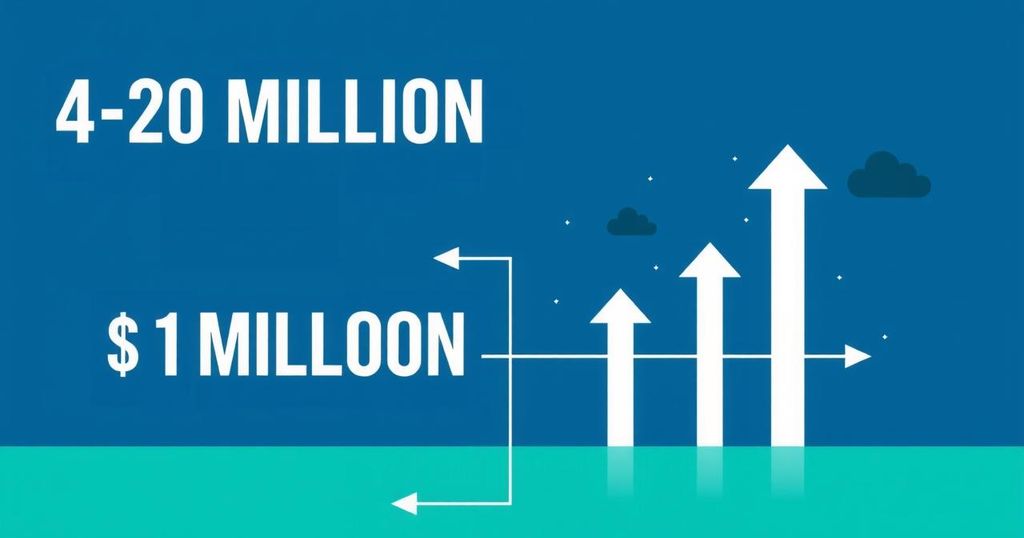Assessing the Time Required for the Average ‘9-5er’ in Ghana to Achieve $1 Million

Ghana’s economic situation has worsened, leading to inflation and reduced purchasing power. The analysis explores how long it would take a typical salaried worker to earn $1 million, highlighting the challenges of savings under current conditions. With the average monthly salary insufficient for ownership of wealth, the article calls for accountability in governance while recognizing varying aspirations regarding wealth among citizens.
Ghana has experienced a significant decline in its economic status in recent years, particularly as its currency depreciates against major foreign currencies, notably the US dollar. This decline raises questions about the financial stability and purchasing power of the average Ghanaian.
As the prices of essential items—such as food, clothing, and housing—skyrocket, many individuals find themselves living paycheck to paycheck. This trend indicates that upon receiving their salaries, most consumers engage swiftly in spending, leaving minimal allowance for savings or investments.
This article focuses specifically on salaried workers, excluding individuals with significant inheritances, diverse income sources, or those who own businesses. While it would have been logical to use the national minimum wage for this analysis, it remains grossly insufficient for achieving even a basic standard of living, affecting a considerable number of citizens in Ghana today.
To investigate the practicalities of accruing a net worth of $1 million as a salaried worker in Ghana, we must examine the time frame required to achieve this milestone. Based on the exchange rate of $1 to GH¢15.42 as of March 19, 2025, an average worker earning GH¢4,000 monthly would accrue GH¢48,000 annually.
Under these assumptions, it would require approximately 20.8 years to amass GH¢1 million. To reach a net worth of $1 million, or GH¢15,420,000, a worker would need to dedicate over 300 years of continuous employment without any salary expenditure, highlighting the daunting reality faced by many Ghanaians.
This stark situation underscores the necessity for Ghanaians to hold their leaders accountable for economic management. Furthermore, individuals often desire more than mere wealth, aspiring instead to provide well for their families and contribute positively to their communities.
The ultimate question remains, “Is $1 million sufficient to alter one’s life circumstances significantly?”
The economic challenges faced by the average salaried worker in Ghana paint a stark picture of the reality of wealth accumulation. With the significant depreciation of the Ghanaian currency and rising costs of living, it appears increasingly challenging for an individual to save and invest. The findings compel a reevaluation of economic strategies and accountability for leadership to improve the financial circumstances of citizens. Ultimately, while wealth is desirable, many Ghanaians prioritize stability and community over mere monetary wealth.
Original Source: www.ghanaweb.com








